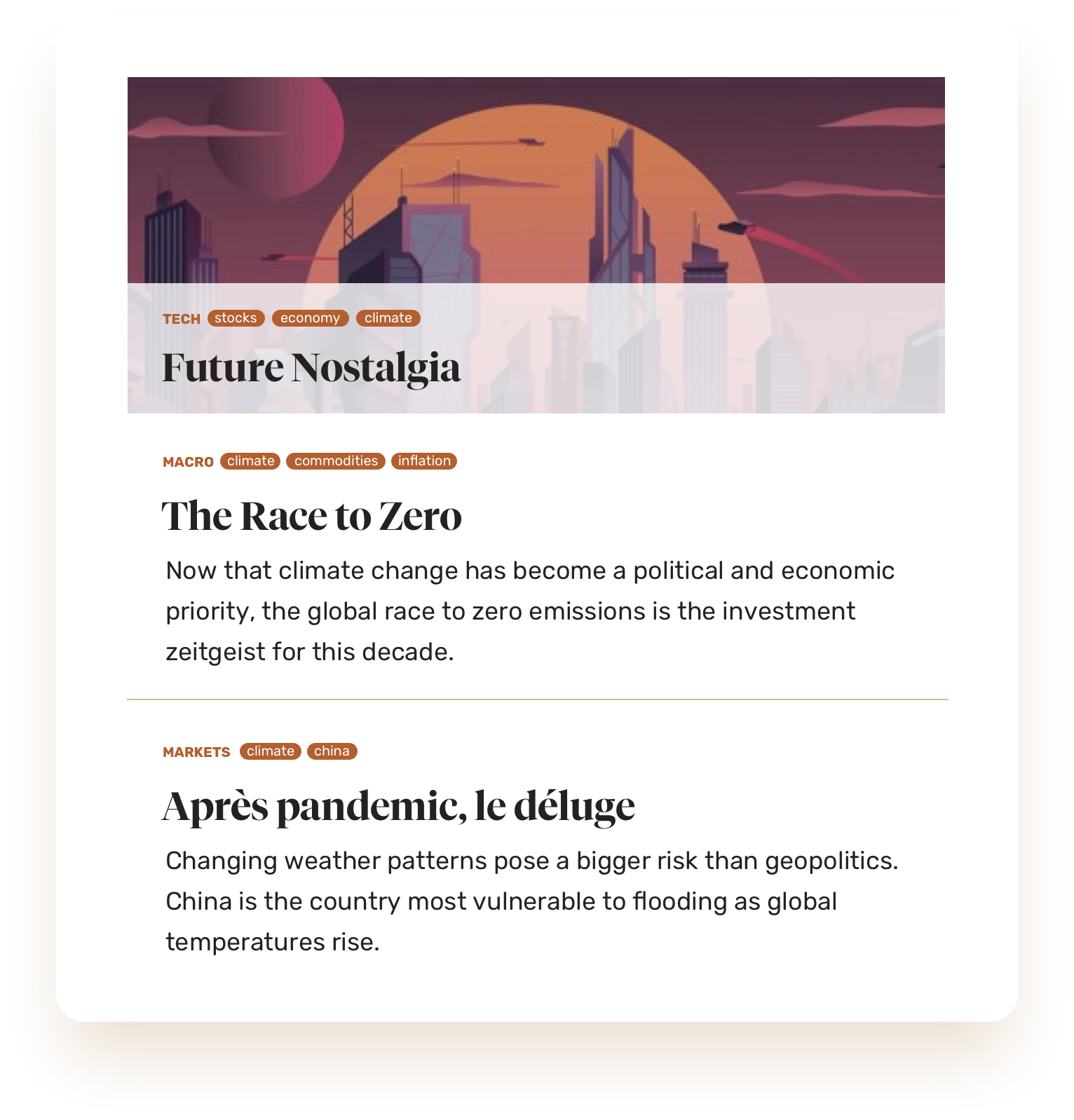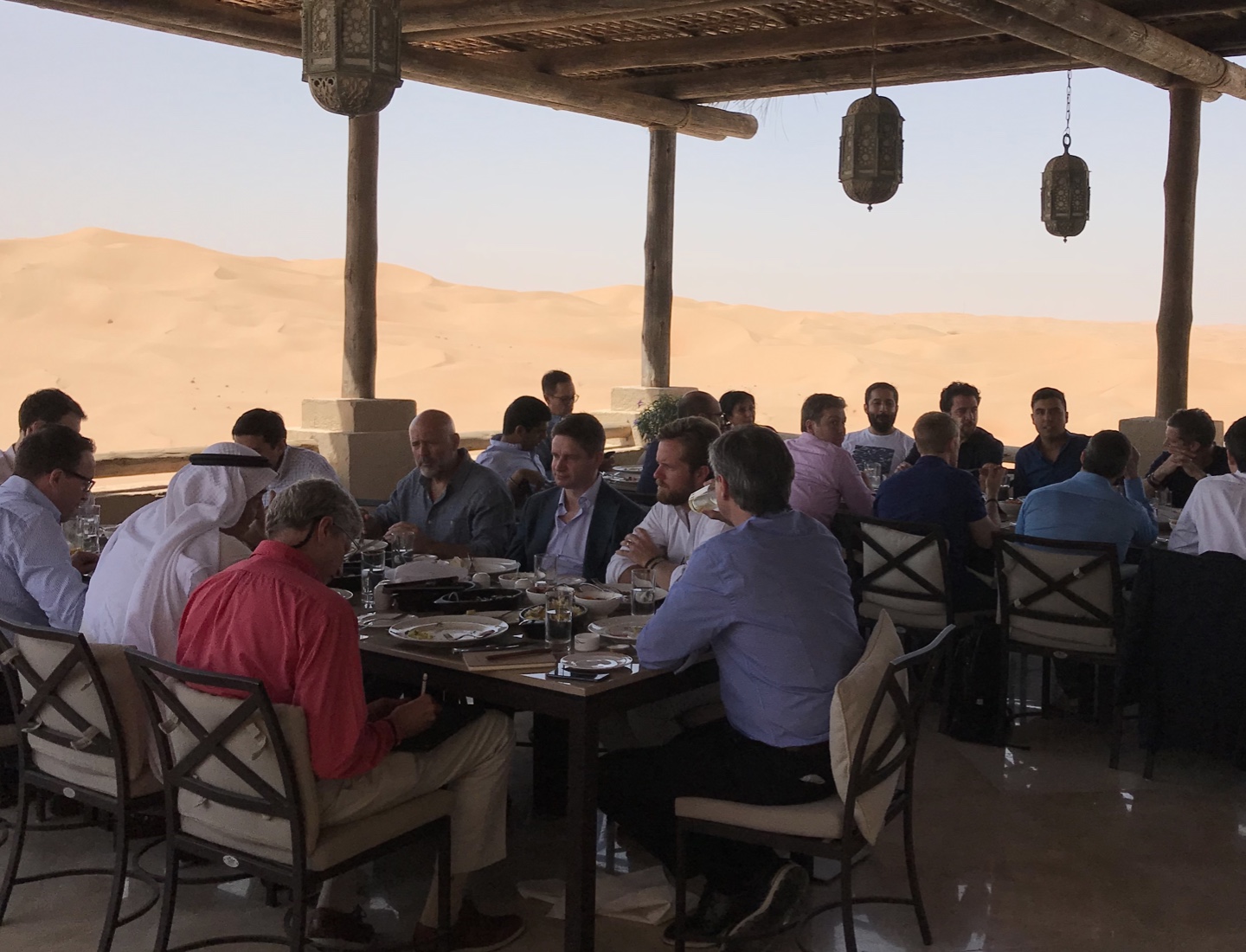We continue the conversation daily in our members-only Slack group, which has become a vibrant source of ideas and discussion. When the membership puts its heads together, it’s easier (and more fun) to make sense of things.
Here’s a summary of the most helpful insights gained from the community last month.
1. Short Cancer
KO (Idaho): Over the next five to ten years, biotech will invent new therapeutic options that will be a greater leap than the last century has seen. There is a wave of innovation on a number of fronts hitting this sector.
If I had to guess, cancer survival rates are going to improve the most of any disease due to a number of factors. In some cancers, with earlier detection and improved immunotherapies, we could see mortality rates fall as much as 90 percent.
We’re literally on an exponential turning point. That is why you are seeing pockets of extreme overvaluation in the sector, but that’s also what people have been saying about SAAS names for years.
SG (London): Doesn't the film I Am Legend start with someone “solving” cancer?
KO (Idaho): Lmao, yes, with a virus actually. Our favorite companies do just that. Oncorus (ONCR) and Replimune Group (REPL) arm viruses with immunotherapy payloads to not only infect and destroy the cancer, but also promote strong local inflammatory responses.
2. Long DeFi
Our salon with Wences Casares, founder of Bitcoin wallet Xapo, inspired a vibrant discussion in our #crypto channel. You can watch the full interview here.
RR (Toronto): Wences imagines bitcoin becoming a “meta currency” which is used as a world standard of value and settlement. It seems so obvious in retrospect but sometimes you need someone else to say it.
Did not central banks ship gold back and forth across oceans or on trains to settle their accounts? Eventually there was some centralization and standardization, and gold was simply reallocated in London or New York. Today many countries hold US Treasuries as a reserve asset.
After the salon, I’ve gone from thinking that central banks would never hold crypto reserves to thinking, hold on, this is potentially the ultimate central bank reserve asset that is essentially unsanctionable.
CT (Austin): Why wouldn’t the G20 just make their own version of bitcoin and massively regulate the existing private cryptos?
RR (Toronto): That’s possible. It comes down to the path dependency of how we get to this hypothetical world. My reaction is that it requires far more mutual trust and coordination than is likely.
CT (Austin): Would central banks opt into a system where they are guaranteed not to be in control?
RR (Toronto): I’d say, right now, the vast majority of central banks are not in control of their gold or Treasuries.
CT (Austin): When I think about crypto, I think about something like the financialization of the world starting in 1982. The biggest moves will happen in the finance space, not in the currency space.
Remember how the financial world created new products like mortgage-backed securities and tranched loans in the eighties. Solomon Brothers and others “created” trillions of dollars in GDP out of thin air simply because they had new ways to “wrap things” in the existing world. None of this actually created productive value as measured by most economists, but it did end up having an enormous wealth effect on all markets. Very few people would have estimated the true impact they would have.
That’s what I think is happening now with crypto and with the inevitable digital central bank currencies. Now we have tools to do that same thing—not just with money, but with intellectual property, security, computing, storage, everything. Bitcoin is a big piece of that but nothing about where this is all going is “currency.” It’s just changing the way we interact. Money at its core is a way to justify exchange but I think that is going to fundamentally change in the next ten years.
Businesses, governments, and individuals will all have new ways to collateralize, lend, borrow and distribute “value.” To me this is the big idea that drives the next chapter in global financial evolution. It requires no new breakthroughs in energy the same way creating mortgage-backed securities required no new real estate to add trillions on balance sheets.
We are a civilization of consumers. Yet we have largely accepted the idea that consumption is a negative value game. Once you buy something, other than a home or collectible, it is almost impossible to collateralize. You can re-sell on Ebay or whatever but you can’t extract real time value in the form of credit.
If I buy a Tesla, for example, and I want to go on vacation, why can’t I take out a real time loan on a marketplace to pay for that vacation using my Tesla as collateral? Why can’t I do that with my computer? Why can’t I bundle all my “things” into a basket of assets and assign value to it, which I can take a loan out with?
The answer is because there are no technologies that allow me to—yet. With physical products this is complicated because of the liquidation process (who’s going to come repossess your computer) but the idea is what I care about.
Another way to look at it is if you wanted to go get a mortgage, you’d most likely have to go to a bank and choose from a fixed set of terms, rates, options. Theoretically, if your home was able to be tokenized, a crypto solution would allow you to get a mortgage on an open market for all or part of your home’s value from your computer. There would be no bank, no intermediary, and assuming the market was big enough, you’d get better and more flexible terms.
Everything that requires an intermediary eats away at the true value. Banks make billions on mortgages—you and the lender should get that money, not banks. As we move to a more digital world, wouldn’t it make sense that this would evolve? Starting with digital assets is where we are now, and that’s big enough. Then apply that to every industry in the world.
Similarly, as governments see what’s happening in the crypto space, they will start experimenting. Do we really know what the net effect would be if the US government was able to “air drop” money into each bank account? Or get all reporting on the economy done in real time? Or allow taxes to be paid each week instead of once a year?
All of this to say that governments are going to accelerate these new processes, not block them. They need something new to work.
I look at bitcoin as the legitimizing factor for this new system. The core of anything in crypto working is security which is the way confidence is measured. Right now, the global system works because of confidence in governments and central banks to make good on their currency. Until enough people trust the crypto world, none of this is really possible. Without a deep sense of security in the network nothing will accelerate.
That’s why bitcoin will continue to outperform over the long term, and will never really be put into any of the boxes people continue to try and put it in. It’s not going to be digital gold, it’s not a currency, and it’s not a call option on the world ending. In my opinion, it’s simply a barometer of confidence in this new idea—that code can be trusted as much as governments
I am hopeful that it succeeds because I personally can’t imagine being stuck with the current system for the rest of my life!
3. Short Bill’s Brain
JM (Toronto): What do you think of Bill Gates’ green manifesto?
DL (Austin): Bill Gates invests less than 3 percent of his wealth on financing the energy transition. Why is that? Because, as the essay suggests, the economics and opportunity of climate investing is a utopic future but a negative cash flow present value.
Investors excited to allocate capital to carbon pricing tell me they see $100 tCO2e pricing horizon which they, like Bill Gates, believe is affordable. But when I evaluate leading renewable energy policy such as Germany’s leading renewable grid where the electricity price is 3-times the US average, I see tithes to assuage fear and guilt. Any climate policy targeting $100+ tCO2e price across the global economy halts human activity.
PR (Dubai): Here is an excerpt from something I read this morning. In Germany the harsh winter has conveyed dramatic warning of how nasty life will become as it proceeds with its extreme Energiewende policy to rely on renewables to meet its electricity needs.
A few days ago, as snow blanketed the country, power supplies from solar panels and wind generators almost disappeared; the nation depended almost totally on traditional energy sources—coal, gas and nuclear. But remaining nuclear stations will be shut by 2023; coal and gas are to be phased out completely as part of the European Union’s Net Zero Carbon plan.
William Engdahl, the geopolitical commentator, says the strategy is already an economic catastrophe. “Going from having one of the industrial world’s most stable, low-cost and reliable electric generation grids, today Germany has become the world’s most expensive electric generator.” As coal is being phased out, traditional energy-intensive industries such as steel, glass, chemicals, paper and cement manufacturing are facing soaring costs and shutdown or offshoring.
Germany already has some 30,000 wind turbines—more than anywhere else in Europe. But the gigantic machines cause serious problems of noise and health hazards for people and birds. By 2025 an estimated 25 percent of existing German windmills will need replacement, and waste disposal is a colossal problem.
The lithium-ion battery-powered vehicles have a total carbon footprint, when the effects of mining lithium and producing parts are included, that is worse than diesel autos.
DL (Austin): The hysterical reaction to climate change, is driven from (1) fear of mortality creating an Armageddon story, (2) displacing emotional guilt and shame on human development and industry, and (3) visioning political benefits in climate policies.
The greenhouse gas (GHG) effect is real, but misrepresented. What is the primary cause of temperature on the earth? The sun and earth’s orbit. Did you know that the earth’s magnetic North Pole, and the orbital wobble around the sun, shifted over the last 100 years from the Canadian Yukon to Siberia?
The earth’s historical CO2 ppm exceeded 2,000 ppm while glaciers extended across large sections of the planet. If CO2 is the primary driver of temperature how is that possible? The GHG effect is misunderstood because of our experience of self and time.
Look at the temperature of Venus (~800 degrees F) versus its atmospheric concentration of CO2 (98 percent) compared to Earth’s temperature (~60 degrees F) and CO2 (0.04 percent). The order of magnitudes is nonlinear but concave instead of convex functions. Why? Because of physics of spherical insulation.
In a past chapter, I helped spur along the climate crisis and emergency narrative. I’m grateful to grow and learn over a lifetime and find so many thoughtful people in the Stray Reflections community.
JM (Toronto): What I can sense is that this is going to become the zeitgeist for this decade.
KO (Idaho): Certainly seems like it. I think wealth inequality is actually a major driver of the movement as well. The climate threat is an excellent way to distract the masses while driving massive amounts of unnecessary investment and consumption.
DL (Austin): And taxes, lots of tax money to collect, and extension of government regulatory structures, and right to restructure/redistribute the economy. If the carbon credit game kicks off again, I’ll be playing.
4. Long Idiots
This passage from Idries Shah’s Wisdom of the Idiots was shared in the #life channel. Because what narrow worldly thinkers imagine to be wisdom is often seen by the Sufis to be folly, the Sufis in contrast sometimes call themselves “The Idiots.”
“When you have found yourself, you can have knowledge. Until then, you can only have opinions. Opinions are based on habit and what you conceive to be convenient to you.
The study of the Way requires self-encounter along the way. You have not met yourself yet. The only advantage of meeting others in the meantime is that one of them may present you to yourself.
Before you do that, you will possibly imagine that you have met yourself many times. But the truth is that when you do meet yourself, you come into a permanent endowment and bequest of knowledge that is like no other experience on earth.”







